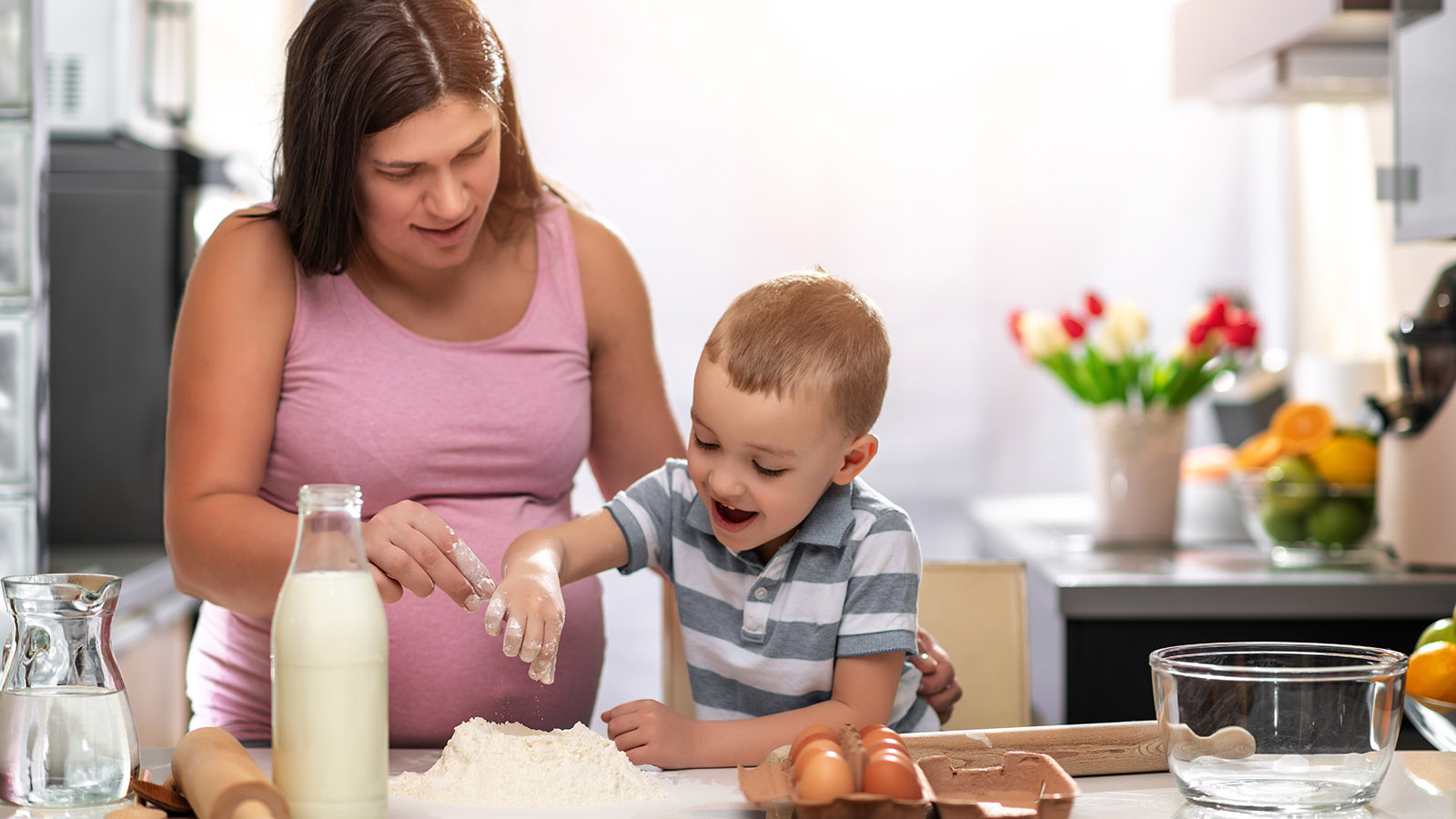By Karen Nemeth, Ed.M
Young children are natural scientists. Everything is new and amazing to them. They love to explore and try new things. Lucky for them, there is plenty of science happening right in their own home and you can help them learn all about it! The great thing about playing with science is that children learn problem-solving skills and practical knowledge about how things work. You can also add some language learning, as you teach your child the vocabulary words in Spanish or English or both. So, a little bit of science experience brings a lot of valuable learning. Here are some fun ideas you can try in your kitchen.
- WATER: Put a towel on the kitchen floor and put out some big and small bowls of water. Add some different kinds of materials and objects for playing with the water. Observe with your child what happens when you dip a sponge in the water. Then try a napkin. Then try dipping a plastic bag or small dish. You might take these activities for granted, but your preschooler will be fascinated to discover that some things soak up the water and other things don’t. You might even experiment with some kinds of foods. What happens when you put some cereal flakes in the water? Or some apple? Then you can have an interesting conversation about what happened, what keeps the water out, and what lets the water in. You might even try fancy words like “absorb”, “repel” (does not let the water in), “sink”, and “float”.
- TRANSFORMATIONS: Let your child be your baking assistant. Engage your child in talking about how the ingredients change when you mix them together. To a young child, it almost seems like magic that you put wet batter in the oven and a few minutes later, a cake comes out. To you, it might be a simple process, but this is how children learn about “transformations” in their introduction to science. You can talk about the smells, the textures, and the tastes. You can show your child how the different measuring and mixing tools work. You can count, and talk about why you use a lot of flour but a small amount of salt. And, if you don’t mind a bit of mess, you might even give your child small amounts of the ingredients to play with and make their own “recipe”. Hands-on learning is always best for young children.
- SOUND: Did you know that the kitchen is a great place to learn about the science of sounds? Toddlers and preschoolers love to make “music” with pots and pans, plastic bowls, soup cans, and cereal boxes. Add a few metal and plastic spoons and you can start your own kitchen band with your child. With all this fun, there is also a lot of learning. You can talk with your child about what makes things sound loud or soft. Ask your child to talk about the differences they hear among metal, cardboard, and plastic things. Your child will discover how hollow things make different noises than solid things. Ask your child which things make higher-pitched sounds and which things make lower-pitched sounds. And, it’s a great way for your child to experience rhythms and patterns. That’s a lot of learning!
- TEMPERATURE: There’s one science topic that’s part of every kitchen: temperature! It is an important safety lesson to learn what hot means in the kitchen. With safety in mind, there are many other ways to explore the science of temperature. If you cook food, it gets hot. If you wait a few minutes, the heat goes away and you can eat the food. Sometimes we blow on food to help it get cooler. You can talk about and touch or taste things that are hot, warm, cool, or cold. For example, if you are making soup for lunch give your child a small amount of soup at different temperatures. Do they like to eat cold soup? What can they do if the soup is too hot to eat? You might experiment with freezing and melting. Take some ice cream right out of the freezer, and put some in a cup. Then check on how it looks every few minutes as it melts. Or pour some water or juice in small cups or ice cube trays and watch what happens when you keep it in the freezer. These are practical lessons that we all need to understand about food, but these are also amazing science activities for your young child.
Early science learning doesn’t have to be about memorizing facts or complicated experiments. These fun activities can give you many things to talk about in whichever language you choose. When you support your child’s curiosity about things in their everyday world, you are building a wonderful foundation for future learning and helping children develop confidence and competence along the way.



